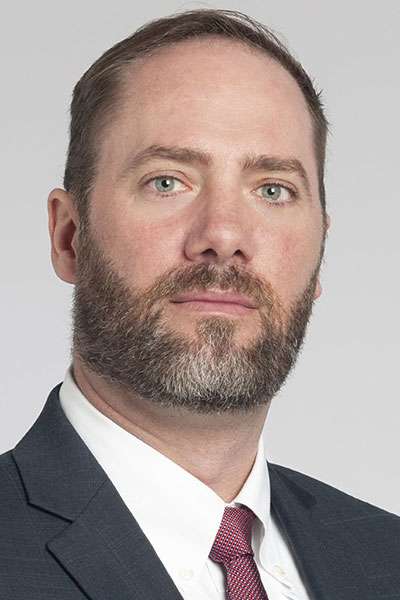
Despite intensive treatment, patients who are critically ill with liver failure have historically faced a high mortality rate. But at the Cleveland Clinic, the multidisciplinary team in a dedicated liver ICU has improved outcomes for these patients by applying emerging strategies for monitoring and treatment.
CHEST 2022 attendees can hear insights from that team during the panel discussion, Interdisciplinary Care Delivery Improves Outcomes – Lessons Learned in a Dedicated Liver ICU, Tuesday, October 18, from 4:00 PM – 5:00 PM CT, in Room 102AB. Speakers will elaborate on the importance of early evaluation for advanced therapies and transplant, including the Cleveland Clinic’s progress over the past 5 years in bridging patients to transplant by aggressively applying novel, evidence-based resources to reverse or stabilize their disease.
“In the past, patients who were critically ill in the ICU were considered too sick for a liver transplant,” said Simon Mucha, MD, a critical care specialist at Cleveland Clinic, who is chairing the session. “Now, almost one-quarter of all patients who receive a liver transplant at the Cleveland Clinic do so immediately following treatment in our liver ICU, without ever leaving the hospital. That highlights a shift in practice and a huge win for our team, and we’re eager to share what we’ve learned.”
In addition to addressing emerging strategies for the care of patients with advanced liver disease, the session will offer lessons learned about multidisciplinary collaboration in the ICU.
“There’s a lot of overlap in the ICU, and the management of patients with liver disease is something any intensivist or pulmonologist in a critical care setting will face,” Dr. Mucha said. “This session will also be meaningful to providers who may not have access to resources like transplantation, advanced liver support, or advanced neuromonitoring for patients experiencing liver failure. Our discussion will prepare them to recognize when a patient might benefit from referral to a center that has those capabilities.”
Dr. Mucha will focus his talk on organizing a successful interdisciplinary team. In a liver ICU, that team should include intensivists, liver and transplant specialists, nephrologists, infectious disease doctors, neurologists, nutritionists, advanced practice providers, and bedside nurses, he said.
In her talk, Aanchal Kapoor, MD, FCCP, director of Cleveland Clinic’s medical liver ICU, will emphasize the importance of appropriately selecting patients to receive cutting-edge strategies, such as advanced neuromonitoring for acute cerebral edema, plasma exchange, and a liver dialysis tool known as the Molecular Adsorbent Recirculating System.
Dr. Mucha credits Ram Subramanian, MD, FCCP, a professor of medicine and surgery, medical director of liver transplantation, and director of liver critical care services at Emory Healthcare, with helping the Cleveland Clinic develop and implement the protocols for its liver ICU. During the session, Dr. Subramanian will discuss the unique considerations involved in caring for patients immediately before and after liver transplantation.
Rounding out the discussion will be Sharad Patel, MD, a critical care intensivist and assistant professor of medicine at Cooper University Health Care, who will discuss the importance of the nephrologist to the liver ICU team, as renal failure can affect both liver disease progression and transplant considerations.
“Patients with acute or chronic liver disease are incredibly complex to treat, but some will respond to advanced therapies and transplantation and can achieve excellent outcomes,” Dr. Mucha said. “We hope to give attendees that insight.”
Join us at CHEST 2025
Save the date for the next Annual Meeting, October 19 to 22, 2025, in Chicago. CHEST 2025 will explore the latest advancements in pulmonary, critical care, and sleep medicine, with a focus on innovation and the future, just as the city itself embodies progress and reinvention.





